How Communities Are Changing the Way We Think About Aging in..
8 Min Read
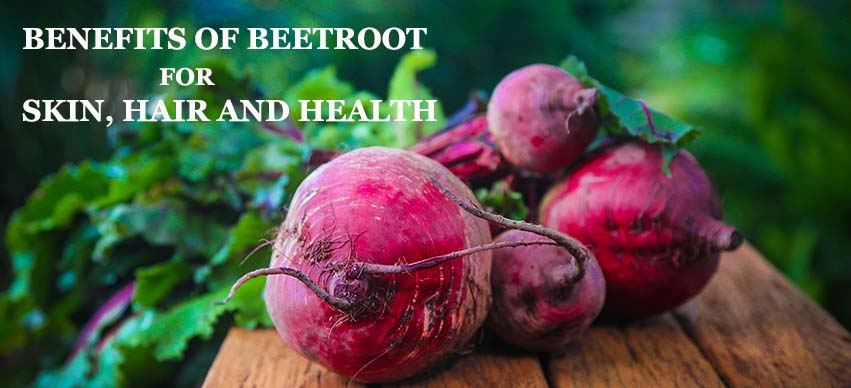
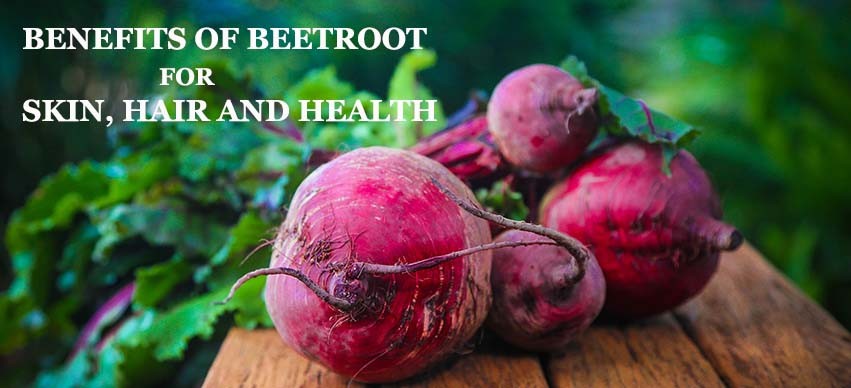
Beetroots are edible taproots that are reddish-purple in color. They are also known by other names such as garden beet, red beet and table beet. This vegetable is one of the healthiest ones because it is rich in various nutrients, including vitamins A, B6 and C, iron, magnesium, potassium and nitrate. You can add raw beetroot in salads or cook it with its peel so that all the nutrients that it contains are retained. Making this delicious vegetable a part of your diet is important as there are many beetroot benefits for health.
Here are 25 of the health benefits of beetroot
The connection between beets and heart health is well known. Because it is rich in nitrate, beetroot can prevent heart attack and stroke. When nitrate is mixed with blood, it oxidizes and forms nitric oxide that causes blood vessels to get enlarged and increases the amount of oxygen in the blood.
Beetroot is an important vegetable to add to your regular diet as it has the ability to control the levels of cholesterol in your body. This vegetable is rich in soluble fibers which are dietary fibers that can help in lowering and controlling LDL as well as flavonoids and betacyanin.
Beetroot has the ability to boost brain power. As people age, brain and memory power decline occur. Beetroot can help in preventing this problem as it has the ability to increase the flow of blood to the brain. This in turn helps in reducing the effects of dementia.
As mentioned earlier, beetroot is rich in various minerals including silica. It helps the body in utilizing calcium, which in turns provides strength to the bones and prevents conditions such as osteoporosis and brittle bone disease. Nutrients such as Vitamin C, magnesium and folate, which this vegetable contains, are also important for bone strength.
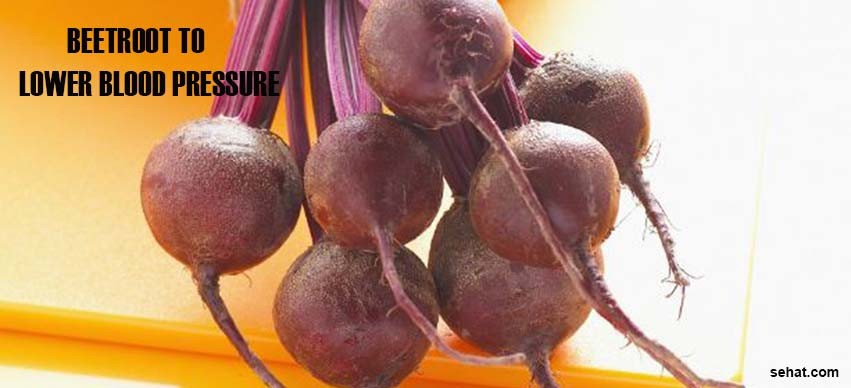
Because of the nitric acid content, you can use beetroot to lower blood pressure. Its ability to increase blood oxygen also makes it an important food for people with high blood pressure. This in turn can help prevent other problems such as heart conditions.
As mentioned, beetroot plays an important role in the prevention and control of high blood pressure. Research has also shown that the nitric acid in this super-vegetable prevents the oxidization of LDL, which can cause damage and inflammation to the lining of the blood vessels. This in turn can lead to plaque buildup as well as hardening of the arteries. Regular consumption of beetroot can prevent this.
According to experts, beetroot has the ability to detoxify the entire digestive system. This beneficial vegetable also helps in breaking down stones in the kidneys, bladder and liver. Its high fiber content also prevents digestive problems such as constipation and indigestion.
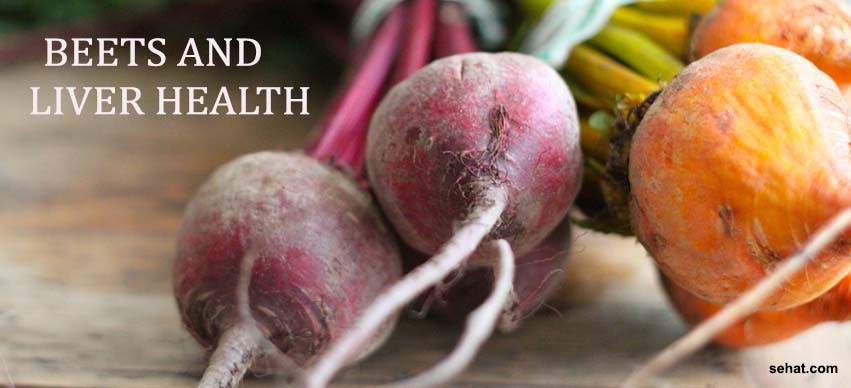
Beets and liver health are closely connected. Beetroot is often called “liver’s best friend†as it detoxifies this important organ. It also supports the production of bile for the proper digestion of dietary fats. When the liver is thoroughly cleansed, it is able to function optimally.
According to research, drinking 250ml of beetroot juice before any physical activity or exercise can enhance your performance. It helps in relieving fatigue apart from improving your stamina. Because it has the ability to stimulate the blood vessels, beetroot is a great energy booster.
Beetroot has natural anti-inflammatory properties which help in the prevention and treatment of a wide variety of conditions including arthritis. It is a helpful food for the management of pain and inflammation associated with chronic conditions and protects your internal organs as well.
Beetroot is an important food when you are trying to lose or maintain your weight. It is high in dietary soluble fibers and low in calories. It also helps in reducing water retention and flushing out toxins from the body, making it great for weight loss.
Beetroot is an important food for diabetics as it can help in controlling blood sugar. It has the ability to stabilize glucose in the blood because it contains a healthy amount of soluble fibers. Experts recommend drinking beetroot juice at least 3 times a week for diabetic patients.
The medicinal properties in beetroot make it an important food to include in your regular diet. One of the health benefits you gain is protection against certain types of cancer. Regular consumption of beetroot juice can prevent liver and colon cancer as it has the ability to detoxify the body efficiently.
Beetroot can contain many nutrients that help in the production of new blood cells and boosting the immune system. The various nutrients that this beneficial vegetable contains include dietary fiber, vitamins A, C and B6, carbohydrates and vital minerals such as iron, folic acid, magnesium, potassium, zinc, etc.
As mentioned earlier, beetroot is rich in minerals including potassium, magnesium, iron, folic acid, nitrate and zinc. The iron content in beetroot also helps in preventing anemia which is common in pregnant women.
Raw Beetroot contains folate, which is an important nutrient, especially for pregnant women as it can prevent a condition known as spina bifica in the fetus. This condition is the lack of development of the spine. Folate also enhances the growth of tissues.
Because beetroot has high soluble fiber content, they make excellent natural laxatives. It helps in softening stool, thereby regularizing bowel movements. It also flushes out the toxins and eliminates harmful toxins from the stomach.
As you know, beetroot has high mineral content. One important mineral that it contains is magnesium, which is a vital nutrient that supports the nervous system and keeps it in optimal condition.
Also known as “natural Viagra, beetroot plays an important role in improving sexual health and stamina. The nitrates in this vegetable help in releasing nitric acid into the body and this in turn widens blood vessels and boosts blood flow to the genitals. Beetroot also contains boron, which is a chemical compound that plays an important role in the production of human sex hormones.
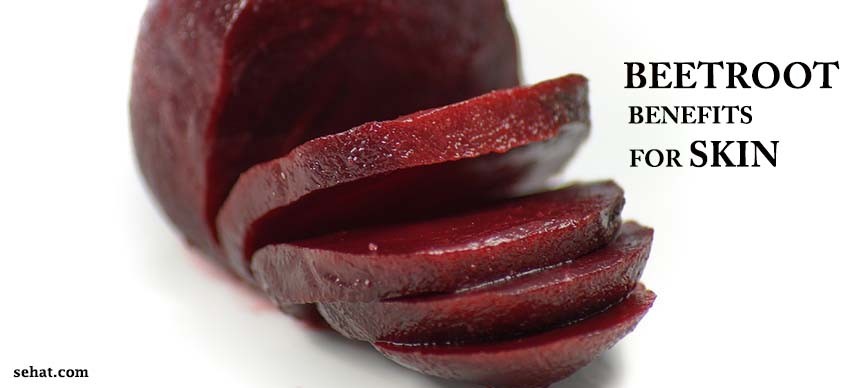
Apart from doing wonders for your health, there are also many beetroot benefits for skin.
The various essential vitamins and minerals that beetroot contains are important for skin health as they help in purifying the blood. When blood gets purified, it results in healthy and glowing skin.
Beetroot has wonderful effects on the skin. Not only does it make skin healthy and glowing because it purifies the blood, but also delays the signs of aging. The antioxidants that this vegetable contains help in preventing fine lines, wrinkles, age spots, etc.
As mention earlier, beetroot has the ability to cleanse the blood and detoxify the body as well. This makes it a great food for the prevention of various skin problems such as acne and pimples.
There are many benefits of beetroot for hair as well. The nutrients in beetroot improve the flow of blood to the scalp. It also has antiseptic and anti-inflammatory properties that help in removing dead cells from the scalp, keeping free of dandruff.
Beetroot, due to the high nutrient content, promotes healthy growth of the hair as excess oil from the scalp is eliminated. The roots of the hair are strengthened and dead pores are opened up to improve nutrient absorption into the scalp. All these make hair healthy and strong.
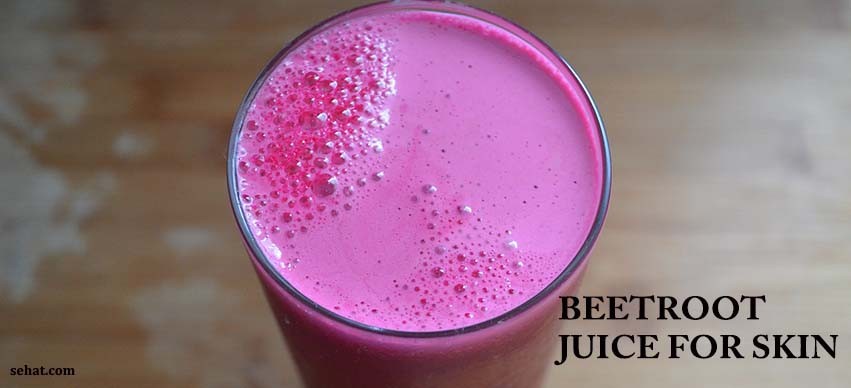
Beetroot can be used in a number of ways to benefit the skin:
You can also use beetroot to make your hair strong, lustrous and shiny:
As you can see, there are many benefits that you can gain by making beetroot a part of your regular diet. Get a healthy body, skin and hair with one of the most nutrient-rich vegetables in the world.